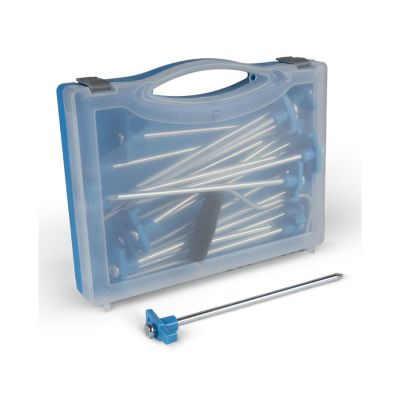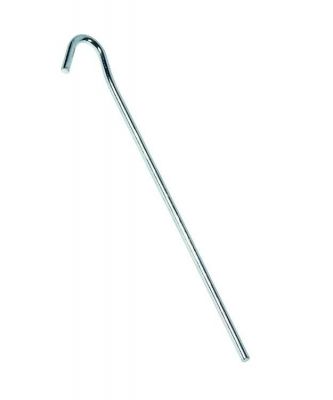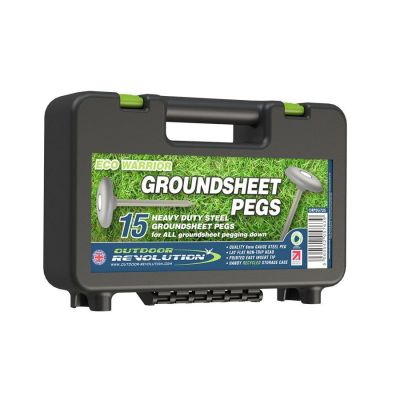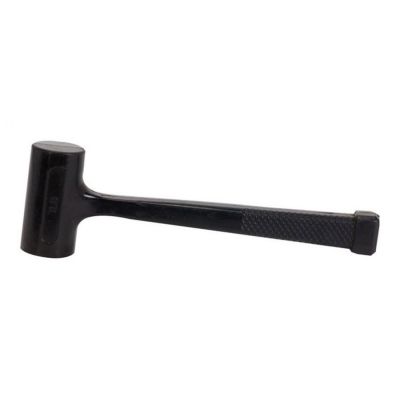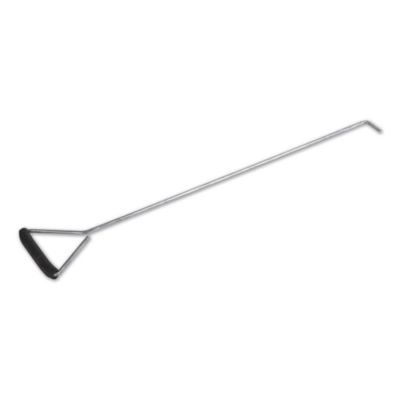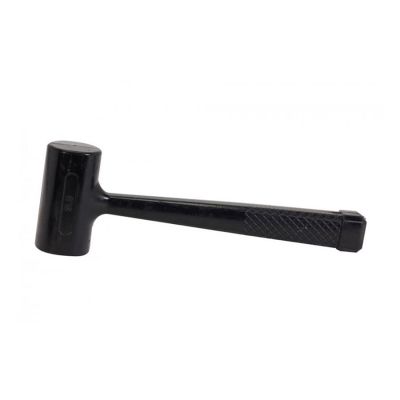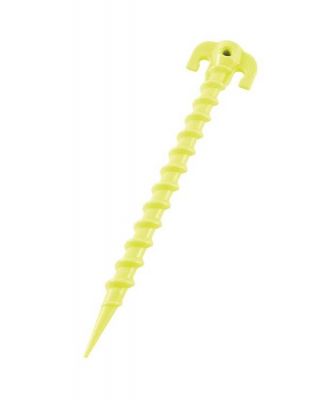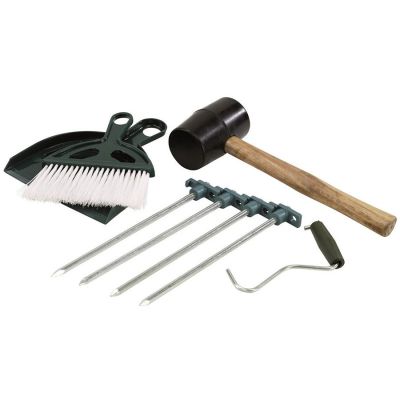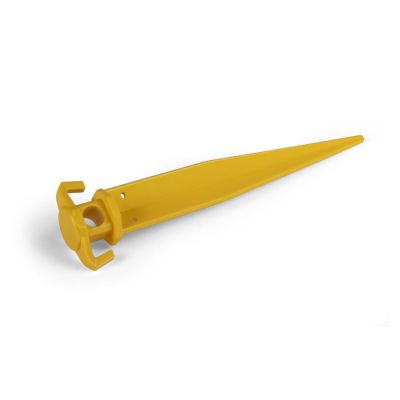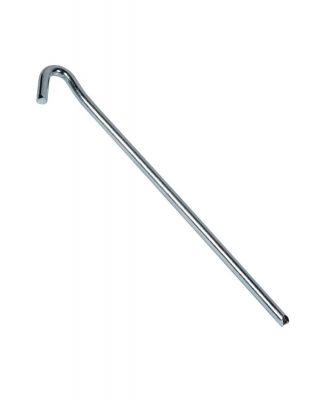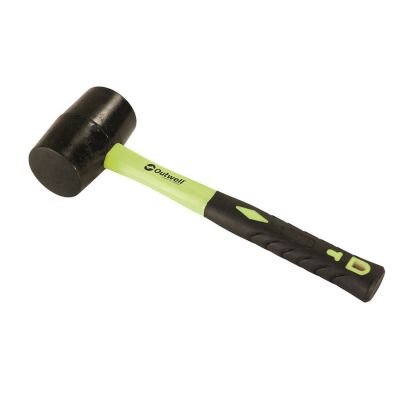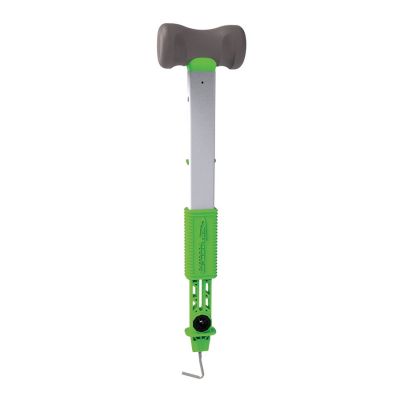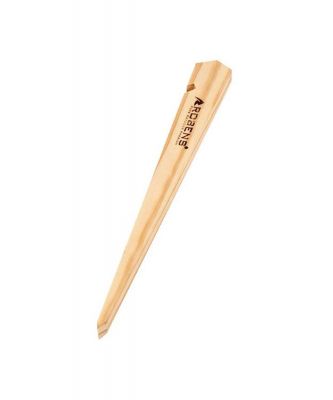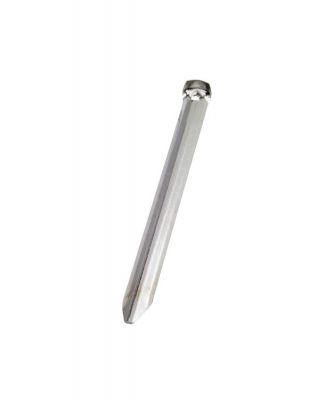We use cookies to make your experience better. To comply with the privacy directives, we need to ask for your consent to set the cookies. Learn more.
| Tent Pegs Tent pegs come in all shapes, sizes and can be made from quite a number of materials. We find customers often have their own favourites but can be tempted by new ideas in tent peg designs. Many, are just uncertain as to what tent peg meets their needs. This small buyers guide seeks to help you with just that decision. |
|
| Groundsheet Pegs - Obviously, these are for pegging down the groundsheet and keeping it from moving out of position, but what features do these pegs generally have. Well, the most obvious and definate feature is that they have a large head. Why? Because the greater surface area the large head gives, reduces the likely hood of the head penetrating the groundsheet. When this happens the groundsheet peg simply stops fulfilling it's function and the groundsheet is prone to slipping. To reduce the likelyhood of tripping on the groundsheet peg the head tends to be rounded or domed. Because they can be difficult to remove it is worth investing in a tent peg puller. This is a simple handle device that hooks into the eyelet of the peg and enables you to extract the peg more easily. Groundsheet pegs tend to be made of tough plastic. |
 |
| Plastic Tent Pegs - these tend to have quite a large profile particularly if you compare them to the thin round steel or alloy pin tent pegs, so you won't get as many in a peg storage bag. Their advantages are that they tend to be lightweight, they don't rust and they tend to be more visible once in the ground due to the bright, vivid colours thate are used. We would generally not recommend them for hard ground. The disadvantages are the pegs tendency to snap, particularly if using a mallet to drive them in. Like the groundsheet pegs they generally have an eyelet so that you can use a tent peg puller to remove them. |
 |
Steel or Alloy Tent Pegs - unlike plastic tent pegs that due to their brittle nature have a tendency to snap, steel and alloy pegs are generally more robust. Typically, a large quantity can be stored in any tent peg storage bag because of their small diameter. Steel pegs tend to be a bit heavier than alloy pegs. It is difficult to generalise about other peg features, but keep the following in mind
|
 |
| Tent Pegs using more than one material - Pegs like the tuff peg or Vango's Rock pegs have a metal shaft with a plastic top. The advantage of this combination of materials is two fold; greater strength in the shaft than pegs made entirely of plastic but greater versatilty and design features at the top of the peg, making them easier to drive in, easier to attach guylines to and easier to remove. It is possible to get replacement tops for these tent pegs when the plastic parts are broken. This reduces replacement costs. |
 |
-
Kampa Wire Peg 18cm (7")
£0.25 -
Outdoor Revolution Eco Warrior Groundsheet Peg
Special Price £8.99 Regular Price £12.49 -
Vango 1lb Strike Hammer
Special Price £4.99 Regular Price £9.00 -
Kampa Back Saver
Special Price £5.21 Regular Price £6.25 -
Vango 2lb Super Strike Hammer
Special Price £10.00 Regular Price £13.00 -
Outwell Power Peg
Special Price £5.99 Regular Price £10.99 -
Outwell Screw Plastic Peg 6 Pcs
Special Price £5.99 Regular Price £9.99 -
Outwell Tent Tool Kit
Special Price £8.99 Regular Price £16.99 -
Kampa Sand Peg
Special Price £1.25 Regular Price £1.50 -
Kampa Heavy Duty Wire Peg 23cm (9")
Special Price £0.58 Regular Price £0.69 -
Outdoor Revolution Multi-Mallet
Special Price £8.50 Regular Price £15.99 -
Robens Wood Stake
Special Price £9.58 Regular Price £11.49 -
Outwell Halfround U-Pegs 30 cm (10 pegs)
Special Price £4.99 Regular Price £7.30

